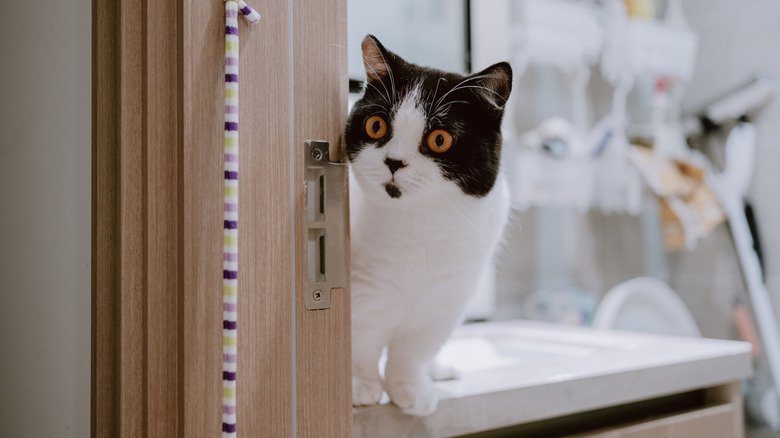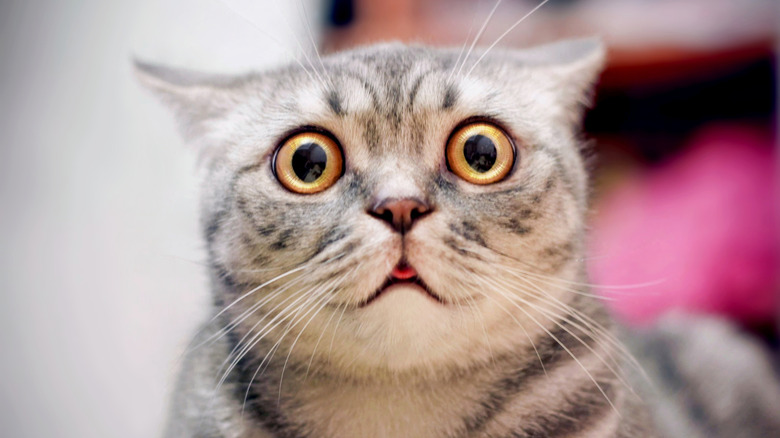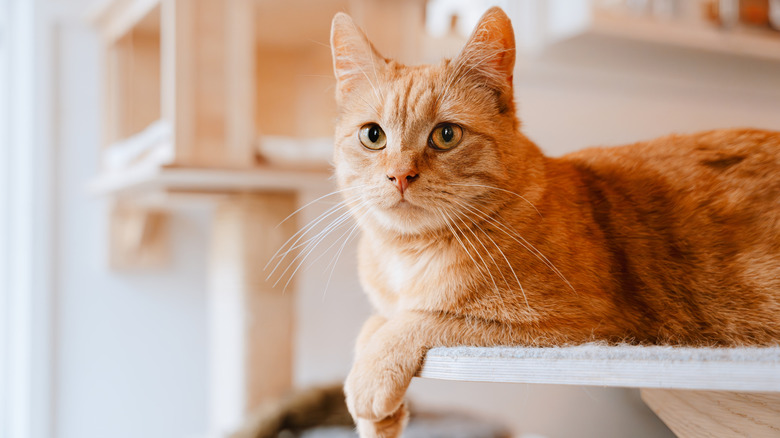We Asked A Cat Behaviorist Which Household Items Secretly Stress Out Your Feline The Most
They have sharp fangs and claws and could kill their prey in a matter of seconds, but domestic felines are still "scaredy cats" at the end of the day. Many jump, run, or hide at the sound or sight of almost anything near or around them that they don't like. Some stressors are unsurprising, like vacuum cleaners, but others are less obvious, and not all of them are visible or audible. To find out which household items secretly stress out cats the most and what can be done to alleviate the stress, Cuteness spoke exclusively with Joey Lusvardi, a certified cat behavior consultant and owner of Class Act Cats in Minneapolis, Minnesota.
Lusvardi shares his insight on behavior and cat-related topics all over social media and is here to offer cat parents some valuable advice on how they can make their homes more comfortable for their feline friends. "Cats can become stressed by anything that makes them feel fearful, threatened, or trapped."
Unsure how to tell for sure if your cat's upset? Look for these seven signs your cat is stressed so you'll know what to do and when to see a vet, but in many cases, you can alleviate the stress yourself by simply modifying the sounds and smells in the atmosphere.
Cats can be stressed out by certain sounds and strong scents
Anything with the ability to hear can be startled by loud, jarring, or unexpected noises like a balloon popping, fireworks, or nails on a chalkboard, but cats have remarkable hearing compared to humans and many other animals. A study published in Hearing Research found that felines can detect sounds from 48 Hz to 85 kHz, one of the widest ranges of any mammal. So, if a certain sound stresses you out, it likely stresses out your furry friend, too.
"Things that make noises, even if we can't hear the noise or feel like it's quiet, can be a huge source of stress for a cat because they have better hearing than us," Lusvardi says. Since they can hear things that humans can't, noises that don't seem loud to us can be disturbing to a cat. "Appliances, TVs, or even our phones may cause stress for the cat, depending on how sensitive the cat is to noise and how loud the item is," he adds. A 2015 study in the Journal of Feline Medicine and Surgery confirmed this, revealing that high-frequency sounds, including ringing phones and computer printers, can cause feline audiogenic reflex seizures — an extreme stress response.
Noise isn't the only culprit that can drive your cat crazy. According to Lusvardi, certain smells can, too. "Scent is very important for cats and part of how they identify members of their colony and their territory," he says. "Heavily scented products, including scented litters or items marketed toward cats, can create territorial stress."
How to remove stressors from your cat's environment
The most obvious way to reduce stress for your cat is by removing or relocating the stressors. "You can turn down the volume on some loud items or find a way to muffle the noise," Lusvardi suggests. Desensitization is also an option. To do this, he recommends first exposing it to the startling noise at a low volume. Then, gradually increase the volume, one notch a day, until the sound reaches the level that would be normal for you.
As for those strong smells, you can make adjustments here, too. If your cat's nose is offended by that mega three-wick candle, swap it for one with natural ingredients and only one wick. Got some air freshener in the house? Lusvardi shares that "if you are concerned about household odors, something that is activated charcoal based will absorb odors and doesn't have a strong scent." Plug-in air fresheners can be especially dangerous to pets and should be kept out of the home.
You might assume your cat will get used to stressful sounds and smells in your home over time, but don't bet on it. "Stress can lead to a lot of behavior concerns in cats," Lusvardi says. Less stress means a happier cat and a happier you. "You'll be less likely to encounter litter box use problems, biting or scratching, and all sorts of other things people typically don't love their cats doing."


